| All Artists: Roland Hermann, Richard [Classical] Wagner, Eugen Jochum, Berlin State Opera Chorus, Berlin State Opera Orchestra, Horst R. Laubenthal, Plácido Domingo, Catarina Ligendza, Christa Ludwig, Dietrich Fischer-Dieskau, Gerd Feldhoff, Ivan Sardi, Karl-Ernst Mercker, Klaus Lang, Loren Driscoll, Martin Vantin, Miomir Nikolic, Peter Lagger, Peter Maus, Roberto Banuelas Title: Wagner: Die Meistersinger Von N�rnberg Members Wishing: 1 Total Copies: 0 Label: Deutsche Grammophon Release Date: 10/25/1990 Genre: Classical Style: Opera & Classical Vocal Number of Discs: 4 SwapaCD Credits: 4 UPC: 028941527820 |
Search - Roland Hermann, Richard [Classical] Wagner, Eugen Jochum :: Wagner: Die Meistersinger Von N�rnberg
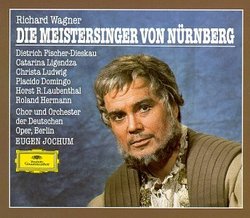 | Roland Hermann, Richard [Classical] Wagner, Eugen Jochum Wagner: Die Meistersinger Von N�rnberg Genre: Classical
Some singers want to record everything in the repertory, suitable or unsuitable to their voices. Dietrich Fischer-Dieskau was one of those singers, and the breadth of his recordings is astonishing. While his artistry is un... more » |
Larger Image |
CD DetailsSynopsis
Amazon.com Some singers want to record everything in the repertory, suitable or unsuitable to their voices. Dietrich Fischer-Dieskau was one of those singers, and the breadth of his recordings is astonishing. While his artistry is undoubted, his instrument lacks the depth to successfully essay the wise cobbler-poet Hans Sachs. Like Fischer-Dieskau, Placido Domingo also finds himself in unusual Wagnerian territory in this recording, and on the whole is not so successful as he was later with Tannhäuser and Lohengrin due to his initial difficulties with German diction. However, the biggest flaw in this recording is the substandard chorus work--a disaster for any opera so dependent on large choruses as Die Meistersinger. This recording is ideal for die hard fans of Fischer-Dieskau and Domingo, but far less than perfect if it is the only Meistersinger in one's collection. --Christian C. Rix Similar CDs
Similarly Requested CDs |
CD ReviewsJochum is magnificent, but the cast is flawed cdsullivan@massed.net | Cambridge, MA USA | 09/04/2000 (4 out of 5 stars) "Die Meistersinger has been recorded very rarely, which is surprising, considering it's Wagner's most accesible opera. And the reason for the scarcity is not that all the other sets were superb - on the contrary, they were all seriously flawed. Vintage Bayreuth sets from the forties and fifties (Abendroth, Furtwängler, Karajan 1, Cluytens) are obviously sonically limited, as is Kempe's 1957 account, long regarded as the benchmark. Kubelik's recording was recorded in 1968 but not released until 1994. Solti 1 was flawed by four square conducting and poor casting, and Karajan 2 was flawed by poor casting. Sawallisch and Solti 2 came later, and both improved upon the competition.Between Karajan 2 and Sawallisch came this 1976 recording on Deutsche Grammophon, featuring Fischer-Dieskau, Domingo, Ligendza and Ludwig under Jochum. It is in many ways a success, but is undone, as are most of the other recordings, by flawed casting. Jochum is masterful, and he is the main reason for hearing this set. He builds the long scenes up to emotional climaxes, has total mastery of the structure of the score, and conducts an electric final scene. He gets good orchestral playing, but the chorus is only adequate. Fischer-Dieskau, as Sachs, creates an insightful portrait of the master cobbler, but his voice is too light for this demanding bass-baritone role, making his casting a bad decision. Plácido Domingo, on the other hand, has a gorgeous voice, but his German is third-rate and he is short on subtlety. Catarina Ligendza as Eva is the worst casting choice of all. Her voice is too big and much too wobbly for Eva, and what insight she has is not nearly enough to correct the balance. Roland Hermann is a venemous Beckmesser, Horst Laubenthal is a good David, and Christa Ludwig is, of course, an excellent Magdalene. The mastersingers are good.So - which recording do you get? The Kubelik recording, on the Calig label, has been widely acclaimed and certainly has a superb cast (Thomas Stewart, Gundula Janowitz, Sandor Konya, Brigitte Fassbänder, etc.). It is getting hard to find, however. My second choice would probably be either Solti 2, Sawallisch, or Karajan 1. Happy listening!" A beautiful recording Tasos | Greece | 10/08/2004 (4 out of 5 stars) " There are so many factors involved in a successful production of Die Meistersinger - let alone their subjective projections - that a `definitive' recording is extremely difficult, perhaps even - considering the practical constraints of a recording production - impossible to produce. Foregoing a detailed analysis of this recording's particular strengths and weaknesses, I feel it is fair to state that it certainly does merit a special recommendation on the strength of two very elemental factors; Domingo's presence and Jochum's conducting and overall direction. Certainly Domingo's command of the German language here is not on the same level as that of a native singer's, or even comparable with someone trained in this particular type of singing from an early stage of his career. But neither does it sound in any way exotic; one merely gets occasionally the impression of a slight hesitance or awkwardness. Overall this is a very minor complaint if one considers what the listener will receive in exchange - one of the most beautiful Walther tones ever recorded, superb musicianship and a vivid portrayal of the character that comes through so very lively and engagingly in every single scene. Going through the list of Walther's performers in past recordings, and listening to their singing, the comparison is unavoidably to be drown that however great singers and dedicated performers they may have been, certainly none of them was anywhere near Domingo's overall class as a tenor. This is I believe something that lies beyond subjective interpretation - given the sheer beauty of his sound and the totally committed and engaging presence that he brings in this characterization, Domingo is beyond the reach of any other Walther interpreter in the stereo recording era ( to say the least ). Jochum's conducting also greatly contributes to an engrossing listening experience - well paced, finely balanced, an altogether excellent orchestral sound that makes listening this recording a pleasurable experience, even for the completely uninitiated into the Wagner world. Certainly Die Meistersinger is much, much more than Walther and orchestra and many listeners will surely feel the desire to look around for different interpretations and approaches, especially in the characterization of Sachs and perhaps in search of a more girlish sounding Eva. For an introduction to Die Meistersinger though, this recording's wonderful beauty of sound certainly recommends itself - and it is hard to imagine any opera fan who would not find some joy in listening to Domingo's amazing voice. " Many lovely things, but Fischer-Dieskau is no Hans Sachs Santa Fe Listener | Santa Fe, NM USA | 04/01/2009 (3 out of 5 stars) "Comments about this problematic Meistersinger from 1976 are all over the map, but I find myself agreeing with "cdsulivan" and Tirstan Klingsor. Fischer-Dieskau is seriously overparted as Sachs, and if that's a first consideration for you -- as it is for me -- nothing else can compensate. Domingo is vocally splendid, linguistically overwhelmed, and dramatically a bit one-dimensional. The Beckmesser of Rloand Hermann is quite well done in a traditional interpretation that's on the serious side -- this Beckmesser is no fool.
Jochum leads a fluid and fluent orchestral part, tending to stay out of the spotlight so that his singers can come forward. I'd wish for more dramatic force at times, and the Deutsche Oper strings go sour here and there. Otherwise, Jochum is thoroughly enjoyable. Ligendza's Eva is a write-off. But uneven casting has been the norm in every recording of Meistersinger except for the acclaimed Kubelik recording; therefore, it's first choice in any short list of outstanding recordings. I'd follow "cdsullivan" and pick Karajan's live Bayreth performance on EMI, despite primitive sonics and a bawling Walther, and Solti's remake on Decca, which displays Ben Hepner's heady Walther in its best setting, the earlier Sawallisch readong on EMI being flat and boring overall." |

 Track Listings (10) - Disc #1
Track Listings (10) - Disc #1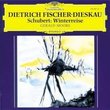
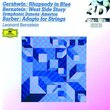
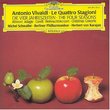

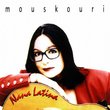
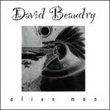
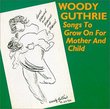
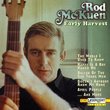
![Seussical [2000 Original Broadway Cast]](https://nationalbookswap.com/cd//m/02/4802/514802.jpg)